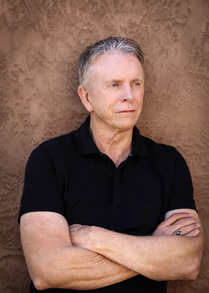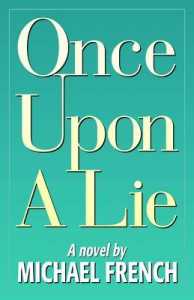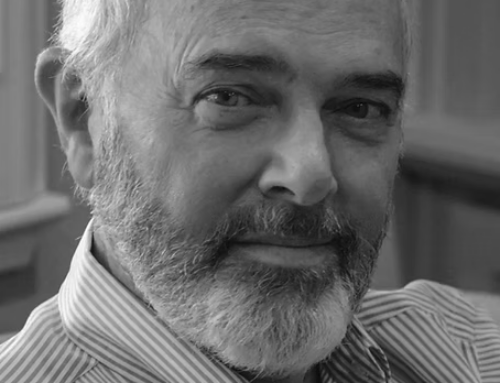 I’ve published over the years 22 or so books, They comprise adult fiction, young adult fiction, adaptations of adult fiction and non-fiction, children’s books, gender studies, art criticism. Several of my books have won prestigious awards. In fiction, I like to experiment and grow as a writer. I never write the same character or story twice. I went to a good college and learned a lot about writing, but I’m also an autodidact.
I’ve published over the years 22 or so books, They comprise adult fiction, young adult fiction, adaptations of adult fiction and non-fiction, children’s books, gender studies, art criticism. Several of my books have won prestigious awards. In fiction, I like to experiment and grow as a writer. I never write the same character or story twice. I went to a good college and learned a lot about writing, but I’m also an autodidact.
Tell us about your book.
I think most reviewers have understood what I was trying to do in Once Upon a Lie. I wanted to tell love story between a young black man on the run from the law, and a white female teenager of privilege. Jaleel and Alexandra live in a binary world of choices in 1980s America, where inequality and racism lie just under the surface. Over a glass of lemonade one afternoon, they begin to fall in love, keep it a secret, and try to hold on when both their worlds begin to fortuitously collapse. Having money does not guarantee an easy path. Actually, it doesn’t guarantee anything. Random acts of carelessness, violence and indifference can doom the best intentions. Both nothing can undermine character and will.
Why did you want to write a book?
I started writing short stories and poems when I was a self-isolating teenager, scared of rejection. I created my own world of characters that I could control. That’s how my habit started. I’m more confident now, but when I have periods of self-doubt, I quickly retreat to at the sanctuary of storytelling.
Why did you choose to self-publish?
With the ease of writing and submitting a manuscript on line, established publishing houses (and agents) have been overwhelmed by submissions the last ten years, so many good books get squeezed out of consideration. The extraordinary number of self-published titles, and titles from small, quality publishing house, reflect this market shift. But there can be advantages to bypassing the old-line houses. More attention to the author, better editing, an emphasis on polished rewriting, and better revenue splits.
Despite being a proud Doubleday and Random House author of many books, I chose a small publisher for my latest novel, Once Upon a Lie. Reviews have always been the sticking point for small houses and self-published authors. Old line media reviewers have yet to give full respect to any author who wasn’t picked up on a mainstream house. But Amazon, for example, now has a list of its top 100 reviewers, and each of those has a significant retinue of readers. Once Upon a Lie was fortunately read by one of those reviewers. In my opinion, the tide is changing rapidly. Just keep an eye on Amazon. One day it may rule the world 🙂
What tools or companies did you use, and what experience did you have?
I use a free-lance editor who had worked for Viking and Simon & Schuster, I before, before the market crashed in 2008 and she went off on her own. She’s terrific, and her rates are reasonable. She doesn’t fine tune, but she let’s you know if you’re making the points you think you’re making. For The Reconstruction of Wilson Ryder, and Once Upon a Lie, I hired a reasonably-priced book marketing firm that exposed me to a universe of reviewers, bloggers, contests and book clubs. There are, I’m told, a million novels published every year now. If you’re interested in selling copies, or just getting reviews, you have to find a way to stand out.
 What do you think are the main pitfalls for indie writers?
What do you think are the main pitfalls for indie writers?
Not fully understanding the every changing market. You have to do research. You have to keep up.
What was your steepest learning curve during the publishing process?
Unless you’re a brand name author, regardless of who publishes you, be prepared to market your own books. When I first published novels decades ago, a thousand new titles came out every year, from twenty five publishers. They had marketing money for most books, and good distribution in store chains. Today the competition is overwhelming. I don’t have to recite chapter and verse about how Amazon has restructured publishing and book selling. Before you even finish your book, make a marketing budget, multiple it by two, and make wise choices by asking around and see what or who gets results. Becoming a best seller is like winning the lottery. Selling a thousand copies calls for a major celebration. Be content with good reviews, and the satisfaction of creating a story or a character that previously did not exist. It’s like giving birth – there’s pain but ultimately joy.
As a writer, what is your schedule? How do you get the job done?
I try to write at least a paragraph a day, and often have steal the time from my day to do that. On a bad day, it’s one sentence of a paragraph, or a rewrite of that sentence. If I can manage 1,000 words a day I’m really happy. I think Hemingway was satisfied with five hundred. I had drinks with Stephen King and his British agent in Manhattan one afternoon – long ago. He was already a successful writer, and stunningly prolific at the typewriter, morning, noon or night. I think he said he could write 10,000 decent word easily, and often more.
How do you deal with writer’s block?
Writer’s block happens, like the flu, or depression, and I find there’s little you can do about it. Then one day the illness passes, and you believe in yourself again. It’s a small miracle. You are forever grateful.
Tell us about the genre you wrote in, and why you chose to write this sort of book.
Once Upon a Lie is a Dickensian novel of multiple characters, plots and subplots, spanning from the 1980s to the present. Despite its 400 page length, I like to think that it’s not long winded, and once you understand the book’s ambitions, you’re good to go to the (surprise) ending. It’s a hybrid of a family drama, crime drama, and love story. It’s also a searching look at America in the Eighties, which, in my opinion, was when thing really went off the rails. But I believe humans triumph in the most adverse circumstances. To survive, you find powers you never knew you had.
How do your friends and family get involved with your writing? What do they think of your book?
I always ask my wife to read what I hope is a final draft. She makes intelligent comments, and I do some rewriting. The process is repeated until she thinks that I have a good FIRST draft. Then I ask friends to jump in. There’re several authors I work with, and I gratefully read their manuscripts too. You never know when someone comes up with an idea or insight you had completely missed. In the best of circumstances, as Nabokov said, the pre-glowof conception has to match the after glow of completion. You can get lucky and finish a manuscript in a year. Sometimes it takes ten years. Sometimes you throw the story away and start anew. Writing seriously is not for the fainthearted.
What did you learn on your journey as an author?
To be open minded about the changes in technology. Also, write something every day, even if it’s one sentence. Strive with each book to improve your skills. Expect rejection and value it as character-building, as well as motivation to work harder. If writing is part of your identity, accept that you can’t and won’t give it up, as tempted as you might be at times.
Links
Author Site
Facebook
Twitter
Pinterest
Instagram
Amazon
Goodreads
Get an Editorial Review | Get Amazon Sales & Reviews | Get Edited | Get Beta Readers | Enter the SPR Book Awards | Other Marketing Services






















Leave A Comment